It’s no secret that our feline friends aren’t known for their fragrant bathroom habits, but sometimes, the odor emanating from their litter box can be overwhelming.
There are a few factors that contribute to this unpleasant aroma. Diet is a significant factor since certain foods can result in more pungent poop smells. The type of cat litter you use and how often you clean the litter box can also impact the scent.
- Diet significantly affects the odor of a cat's poop, with high protein diets often leading to more pungent smells.
- Parasitic infections and digestive disorders in cats can cause their stool to smell particularly foul.
- Poor litter box hygiene can exacerbate the odor problem, making regular cleaning essential.
- Regular veterinary checks and proper diet can help manage and reduce the odor of cat poop.
However, there’s no need to worry. You can use simple tricks to make your home smell more pleasant despite your furry friend’s less-than-ideal bathroom habits.
The information provided herein is for informational purposes only. Please refer to our disclaimer for more details..
What Does Healthy Cat Poop Smell Like?
Although we don’t expect it to smell good, a healthy cat’s poop should be mild and barely noticeable. A healthy poop shouldn’t smell bad or foul. Instead, it should have an earthy smell. Cats’ stools can also smell like their food.
Foul-smelling poop could mean that something is wrong with your cat. Factors like your cat’s diet, hydration, and overall health can affect the smell of your cat’s poop. Apart from that smell of your cat’s poop, you should also look out for the color, consistency, and shape of the fecal material to ensure your pet’s health.
Is the Smell of Cat Poop Bad for You?
Generally, the smell of a cat’s stool isn’t harmful to humans when the exposure is negligible. However, your cat’s smelly poop can be unpleasant and cause discomfort, especially when the smell is persistent.
While the smell of your cat’s feces may not be a big problem, many zoonotic diseases can be transmitted through cat feces. According to Cornell Feline Health Center, the four major exposure points by which cats spread diseases to humans include feces, skin or fur contact, saliva, and scratches.
Reasons Why Your Cat’s Poop Smells So Bad
Diet
Ever heard the saying “You are what you eat”? Well, this saying applies to cats as well. Your cat’s diet plays a massive role in the smell of your cat’s stool. Cats are carnivores that thrive on protein-rich diets.
Cats fed with high protein or fish-based diets are more likely to have feces with foul odor because bacteria in the colon then break down these proteins, producing foul-smelling byproducts like hydrogen sulfide and ammonia.
In addition to this, cats fed with low-quality cat food are more likely to have stinky poop. A cat may also have smelly poop when it is dehydrated. Their feces will become harder and more concentrated, producing a more pungent odor.
Parasites
Parasitic infections in cats can cause their stool to carry a powerful foul smell. Parasites like Giardia, Trichomonas, and Coccidia disrupt the normal digestive process and lead to smelly feces.
These intestinal parasites also interfere with your pet’s ability to effectively absorb nutrients from its food. This leads to the loss of undigested materials in excreta and, consequently, foul-smelling feces.
Digestive Disorders
Cats are prone to experiencing a range of digestive problems, including inflammatory bowel disease and pancreatic disorders, which can give their poop an unpleasant odor. These issues can result in improper digestion and absorption, leading to inflammation, diarrhea, food intolerance, and allergies.
Furthermore, such disorders can make your cat’s intestines more sensitive to certain types of food. Undigested fats and starches can also contribute to the unpleasant smell of your feline friend’s excrement.
Bacteria
Bacteria in the colon usually ferment undigested food particles, releasing gases such as methane and hydrogen sulfide. If there is an imbalance in the types and quantities of bacteria, fermentation can increase, leading to more of these gases and your cat’s poop emitting an unpleasant odor.
Your cat’s gut health is dependent on bacteria, and any sudden shift in their number can cause a significant change in the smell of your cat’s poop.
Anal Gland Infection
Cats have anal glands positioned near their rectums that produce a fluid with a naturally pleasant scent. However, when these glands become infected, the stinky odor emanating from the cat’s poop may be an indication of an anal gland infection.
As per Merck’s Veterinary Manual, during defecation, the anal sacs may not be able to express themselves if overweight cats have inadequate muscle tone or if there is excessive glandular secretion due to widespread seborrhea. In the case of anal sac content retention, the risk of bacterial overgrowth, infection, and inflammation may increase.
Poor Litter Box Hygiene
Maintaining a clean and tidy cat litter box is essential to avoid any unpleasant odors emanating from your furry friend’s feces. The type of litter you use also plays a crucial role in keeping the smell at bay.
If your cat can’t cover its poop, or is pooping outside the litter box, it will result in a particularly pungent odor, so it’s best to keep an eye out for these things and take care of your feline friend’s litter box regularly.
Food Additives
It is important to pay close attention to the ingredients in our pets’ food as some additives could cause foul-smelling stool in cats.
Smelly Poo: When To Talk to a Vet
Mildly pungent stools for a few days might not cause worry in an otherwise healthy feline. However, if the unpleasant odor persists or your cat is experiencing other symptoms like throwing up a bloody stool or diarrhea, it is vital to get in touch with a vet.
Your vet will need to conduct some tests to determine the root cause of your cat’s fecal issues. Any prolonged or consistent changes in stool smell may indicate an underlying health condition requiring a professional assessment.
Ways To Eliminate The Stinky Smell of Poop
If you have a feline friend in your house, you might be struggling to eliminate the unpleasant smell of cat poop. Fortunately, some practical ways exist to reduce or eliminate the stinky odor.
To keep your cat’s litter box clean and odor-free, it’s essential to maintain it regularly. This means changing the cat litter frequently and using odor-absorbing or clumping litter. A covered litter box can be a practical solution to trap the odor.
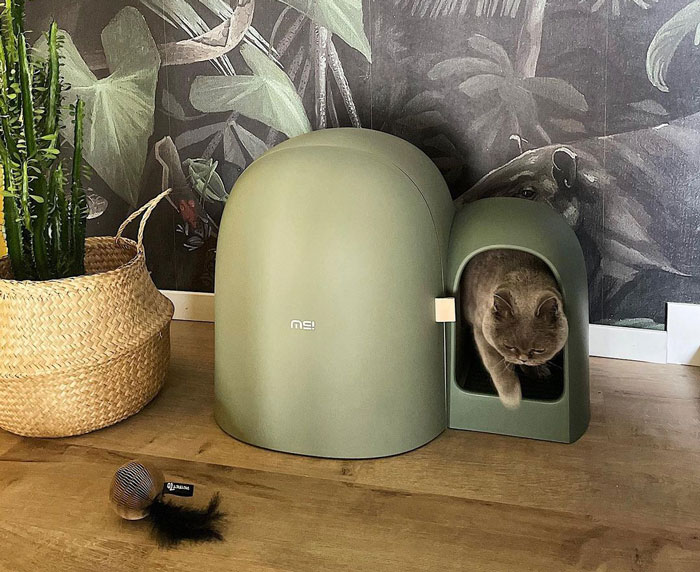 Image credits: plantstodo
Image credits: plantstodoTo remove carpet odor, clean with warm water, vinegar, and dish soap. Alternatively, you can use baking powder as a cost-effective deodorizer to neutralize the unwanted smell.
Lastly, ensuring your cat receives proper nourishment and hydration is critical. If the odor persists, have your furry companion examined by a vet to identify any underlying health problems.
FAQ
What Can I Give My Cat So His Poop Doesn’t Smell So Bad?
Consult a veterinarian to determine the cause of bad-smelling cat stool and adjust their diet accordingly.
Does Wet Cat Food Cause Smelly Poop?
Wet cat food typically has a higher moisture content than dry cat food. This can lead to softer stools and potentially more pungent odor, though individual cats may respond differently.
2Kviews
Share on FacebookExplore more of these tags
"Diet significantly affects the odor of a cat's poop, with high protein diets often leading to more pungent smells." Bruh, cats are OBLIGATE CARNIVORES. *Obligate*. This means that they REQUIRE a meat (protein)-based diet to survive. You SHOULD be feeding your normal, healthy cat a high-protein diet. Only a cat with kidney issues or similar should be fed a lower-protein diet. All felids are obligate carnivores (also known as hypercarnivores) and they lack the enzymes/digestive system to digest and derive nutrients from plant-based ingredients seen in low-quality cat foods such as corn, wheat, and any and all plant ingredients. Cats should NOT be fed a low-protein or non-meat-based food in the HOPES that you will de-stinkify their poop. That is absolutely abhorrent.
Their poop smells because it doesn't fall quickly into water like your poop does. Your poop stinks too!!!
"Diet significantly affects the odor of a cat's poop, with high protein diets often leading to more pungent smells." Bruh, cats are OBLIGATE CARNIVORES. *Obligate*. This means that they REQUIRE a meat (protein)-based diet to survive. You SHOULD be feeding your normal, healthy cat a high-protein diet. Only a cat with kidney issues or similar should be fed a lower-protein diet. All felids are obligate carnivores (also known as hypercarnivores) and they lack the enzymes/digestive system to digest and derive nutrients from plant-based ingredients seen in low-quality cat foods such as corn, wheat, and any and all plant ingredients. Cats should NOT be fed a low-protein or non-meat-based food in the HOPES that you will de-stinkify their poop. That is absolutely abhorrent.
Their poop smells because it doesn't fall quickly into water like your poop does. Your poop stinks too!!!

 Dark Mode
Dark Mode 

 No fees, cancel anytime
No fees, cancel anytime 


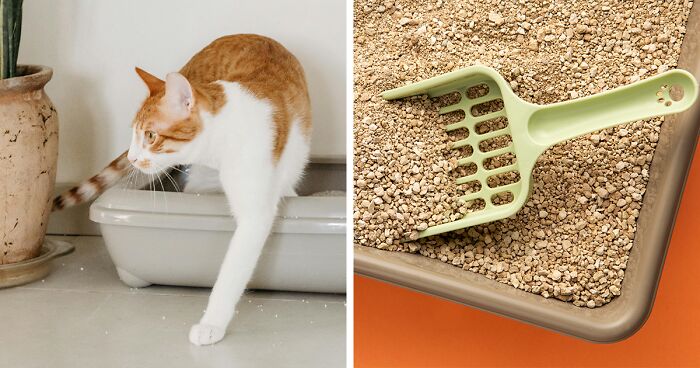
 Image credits:
Image credits: 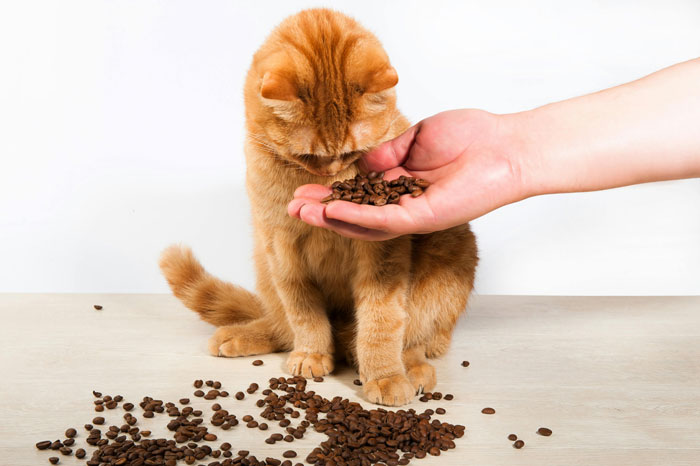 Image credits:
Image credits: 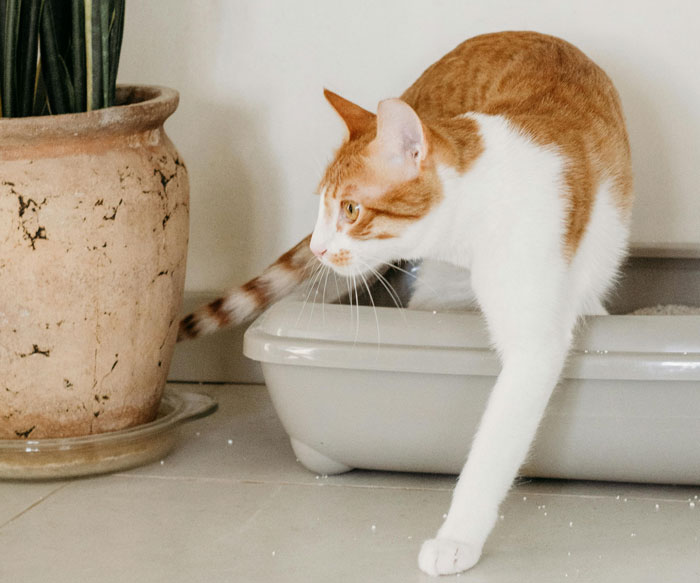 Image credits:
Image credits: 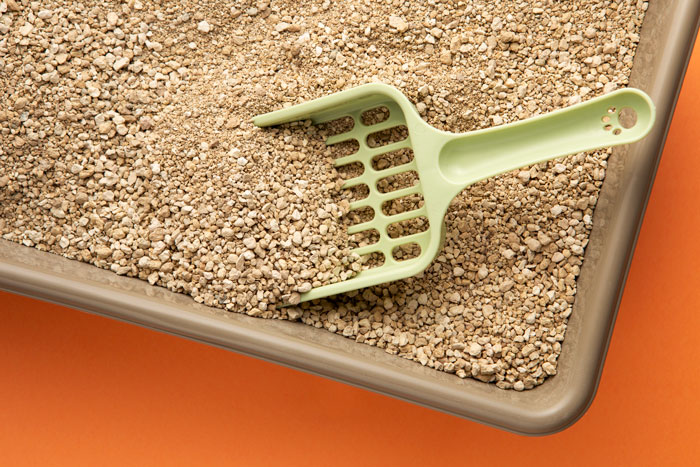 Image credits:
Image credits: 











































3
2